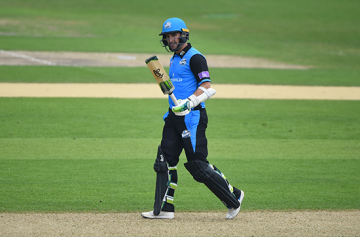In 2017 the ECB agreed a £1.1bn deal with Sky and the BBC that aims to increase the sport’s popularity in the UK following years of declining participation.
For the BBC it will be the first time in 21 years that cricket will be aired on the channel, as they host England men and women’s Twenty20 fixtures and the controversial new short form competition, ‘The Hundred’.
The last time a terrestrial channel aired live cricket coverage was back in 2005 when Channel 4 showed every ball of England’s impressive Ashes triumph, but when the BBC take the reins in 2020 test match cricket and 50 over games will remain behind the pay wall.
Sky Sports has been the home of test matches since 2006 and will remain so until at least 2024 when the new deal ends.
Chief adviser to BBC Sport, Neil Land, claims that whether the BBC wanted to air test matches or not, the financial might of Sky would make it impossible.
“Once there is competition between paid and free to air there is only one winner which is paid TV because they will offer much greater sums than us and ITV can afford.”
Land was also quick to address however that in a practical sense test matches simply would not be viable for any terrestrial channel.
“We have a mixed genre channel that serves all different types of program to all different types of people who want to watch them”
He added, “Aside from the fact that we can’t afford it there’s the practical consideration which is that it’s very difficult for us to say to a license fee payer who doesn’t like cricket that were going to dedicate all this volume to cricket.
“So that’s the reality of the situation and it’s the same for ITV and Channel 4”.
Ensuring a synergy with Sky and the BBC provides the ECB with a good blend of investment and exposure.
It could be suggested though that amongst fears over the future of test cricket, airtime on the nation’s leading terrestrial channel would improve the formats reputation by getting it into living rooms across the country.
When you consider the excitement this summer’s red ball performances brought, with Cook’s farewell ton and a first overseas win in two years it would seem like a missed opportunity.
Land disagrees, believing the deal will give the sport as a whole, much more than if the BBC held all the rights.
“I think the important thing is, even though I work at the BBC, I would never say that every sport should be free to air.” He added, “Yes, you would get the most amount of viewing and more people watching games but the best sports in the country work out a good mix between paid TV and free to air exposure.
“You get the money from paid, which is good for investment into the sport and creating good competitions with big prize money, but then you need some big high-profile broadcast windows to make sure that message is taken to the widest audience and that’s where the ECB are being very clever as they’re trying to get both.”
It’s not just the ECB that seem to be getting a good deal. The BBC have invested in a format of cricket that has sparked a global transition into how the game is played.
Since the format was introduced to country cricket by the ECB in 2003 it has blossomed and there are now 37 Twenty20 competitions across the globe. Brazil, Canada, Afghanistan and Hong Kong all have their own competitions so it is certainly a format that has promoted cricket across the world.
So, the BBC have a great opportunity to utilise one of the fastest growing sports in the world, but what exactly do the BBC aim to do for cricket in the UK?
Land says, “Our deal is very much about how the whole power of the BBC can be brought to bear to increase the impact of cricket in this country.”

The emphasis on T20 cricket in the new deal may not represent the feelings amongst the players themselves however.
The Professional Cricketers Association represent every professional cricketer in England and Wales. Their Chairman and Worcestershire captain Daryl Mitchell explains that the players themselves still hold first class cricket with the highest regard, “In the most recent survey test cricket is still seen as the pinnacle of the game by the vast majority of players”
In his career Mitchell has played 192 first class county championship games and 149 T20 games for Worcestershire and reflecting on his experiences he seemed confident about the future of test cricket in the UK at least.
“I think you have the purists and test cricket is still seen as the pinnacle by a lot of English supporters and certainly by the English domestic players so there’s a lot of call for that (test cricket). He added, “T20’s are obviously seen as the money maker if you like and it’s what’s driving revenues around the world.”
Speaking about the deal itself, Mitchell sounded hopeful when addressing the BBC’s involvement believing it will prove to be a very important decision by the ECB in terms of getting young people interested in the sport. “Having the BBC on board not just for the TV but their other digital platforms as well, I think is very important.”
He said, “The younger generation generally confine their sport into bitesize pieces rather than watching a whole test match for example.” He added, “The BBC will get cricket into homes and living rooms across the country and I think it will drive participation which I’m sure is a big aim of the deal”.
The deal will come to the fore in 2020 and BBC Two will become the new home to domestic and international Twenty20 fixtures. Showing the new somewhat untested ‘The Hundred’ on terrestrial TV is a bold decision by the ECB but one that could prove revolutionary.
Here’s both Neil and Daryl talking about the deal and its impacts:
Read the alternate print versionhere
Want to know more? Just click on the links below!
Watch: Participation in Cricket
Listen: Is the BBC Crickets Saviour?
Blog: Why not check out our blog


 The darkness behind the lights
The darkness behind the lights